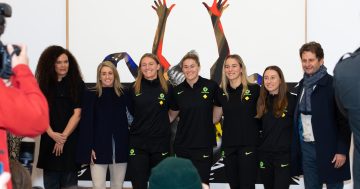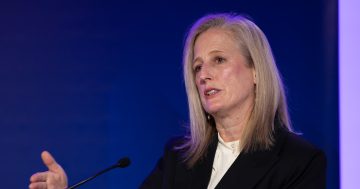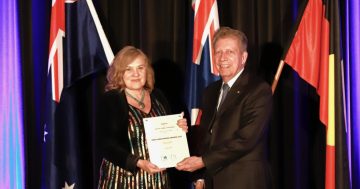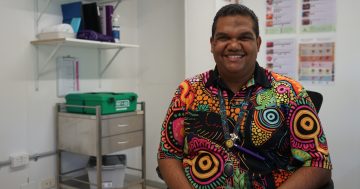Alicia Vrajlal* speaks with Jan Fran about shifting the narrative around empowerment feminism.
 Over the last few years, we’ve started to see a gradual demise of girlboss culture.
Over the last few years, we’ve started to see a gradual demise of girlboss culture.
While millennial women in particular leaned in when the narrative was at its prime and many got what they were chasing (a demanding job, a time-consuming side hustle and social media bragging rights), it’s clear that all the girlbossing in the world won’t achieve the systemic change needed for women to truly succeed.
For television presenter Jan Fran, girlboss culture has always seemed somewhat “suss”.
“It felt like more marketing than substance to me, and I think as the years went on, that just became truer and truer,” the 38-year-old tells Refinery29 Australia.
While the phenomenon has never really sat well with her, Fran says that her perception of what the world needs in lieu of girlboss culture has become clearer since giving birth to her first child last June.
“There’s something that happens when you have a kid and have to re-enter the workforce.
“You just become very attuned to logistics and the day-to-day,” she explains.
“It’s not to say that I wasn’t particularly attuned prior to having a baby, but I’m attuned in a slightly different way now in terms of what my needs are to be able to get back into the workforce.
“Plus, in terms of what a boss means and how it actually plays out rather than how is it sold!”
Fran says she doesn’t feel the need to “sell” or “outwardly present” herself to people in a particular way.
“What I need is childcare — easy, accessible childcare and good policies around childcare,” she says.
“What I need is a parental leave policy that encourages men as much as women to spend time in the home and take care of their children so it’s not just the careers of women that are getting curtailed.”
Since it took off in the 2010s after a global financial crisis, we saw the likes of Nasty Gal’s Sophia Amoruso and others push a narrative that anything was impossible if you just work hard enough.
But, while this glossy phenomena looked great and encouraged us to just “lean in and look good”, Fran says that the “economy doesn’t run on mantras” — and it’s time that anyone still lingering in the girlboss era realises that.
“There are realities that really lie in policy changes if you want to make the workplace better for women overall,” she says.
“Policy changes — they’re not sexy and you can’t sell them in a post.
“You can’t cover them in a really nice, tailored pink jacket.”
The past couple of years during the COVID-19 pandemic have dramatically shifted the narrative around girlbossing, with Gen Z in particular identifying the flaws with hustle culture.
This time has also allowed us to reflect on the definition of a ‘girl boss’.
It’s not necessarily an entrepreneur in a flashy suit, but also women on the frontlines of our undervalued care economy.
“When I use that word [girlboss], I think of all of the people that really got us through the pandemic who were on the frontlines — people like nurses, teachers, drivers, supermarket workers and cleaners,” Fran says.
“These are the women who propped up the economy.
“These are the women that we relied on to get through the pandemic.
“It’s not the kind of pretty picture that you see being sold to you on Instagram.
“They’re the workers who were the backbone of our economy, and also socially, in that really horrible time.”
Fran will be moderating the Goodbye Girlboss event during the All About Women festival at Sydney’s Opera House, speaking to content creator Flex Mami and journalist Jamila Rizvi about the role of empowerment feminism in today’s society.
She hopes the discussion will get audiences thinking about what a ‘girlboss’ means and the lasting impact the phenomenon has had.
“I [ultimately] hope that we can talk seriously about the type of people we rely on,” she concludes.
“I don’t need words and slogans.
“We need a better paycheque for them.”
*Alicia Vrajlal is Culture Editor at Refinery29 Australia.
This article first appeared at refinery29.com.











